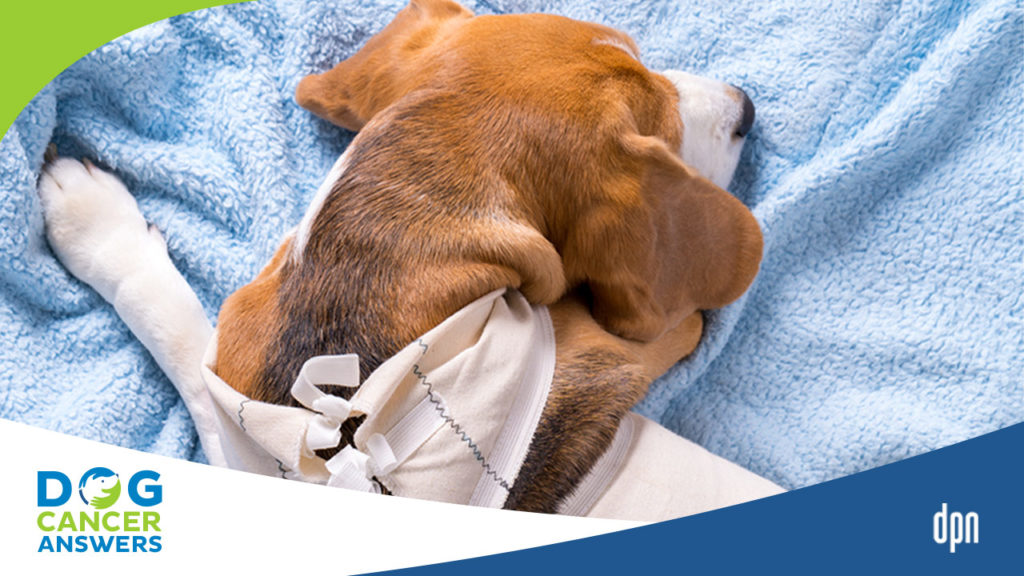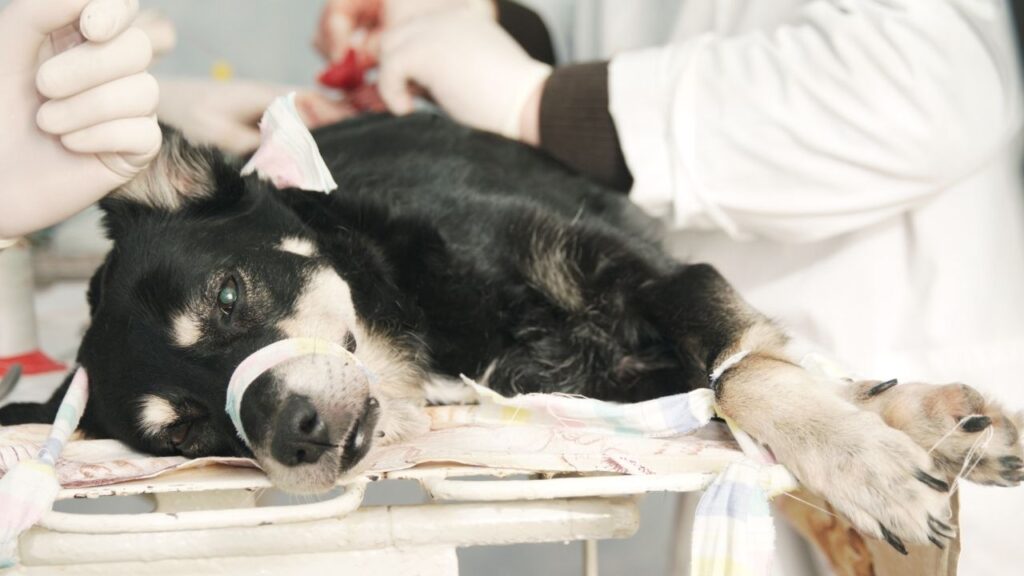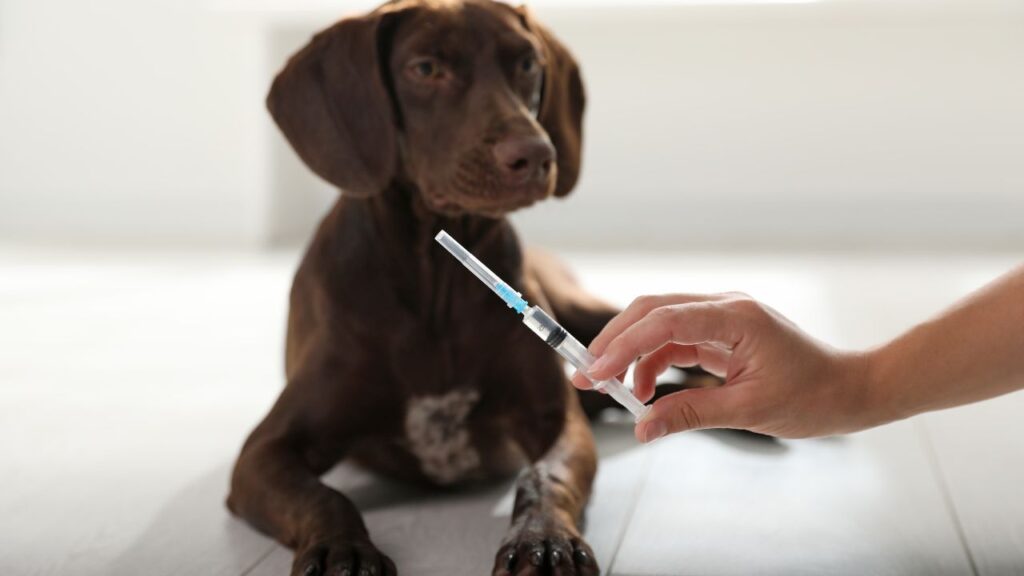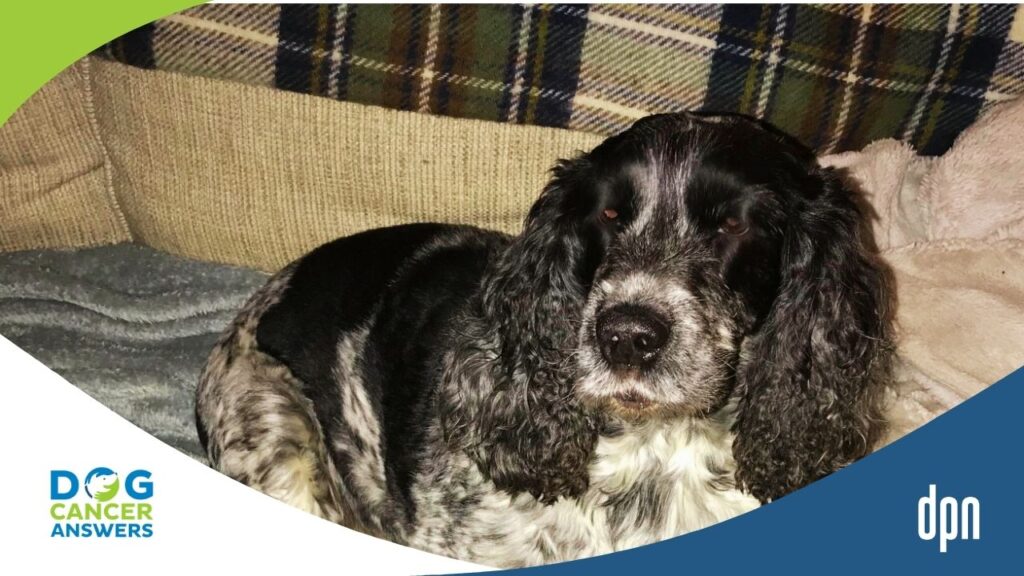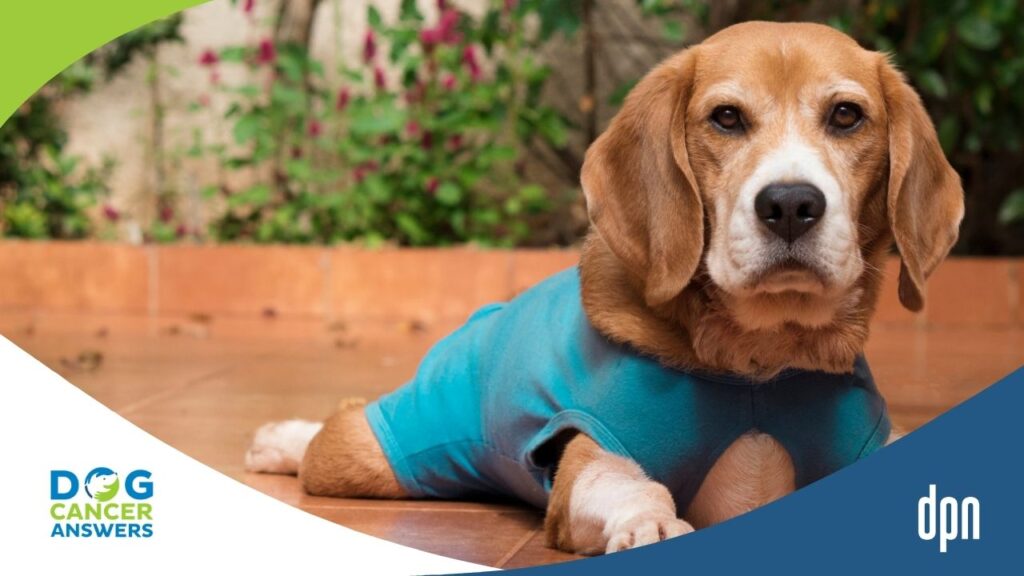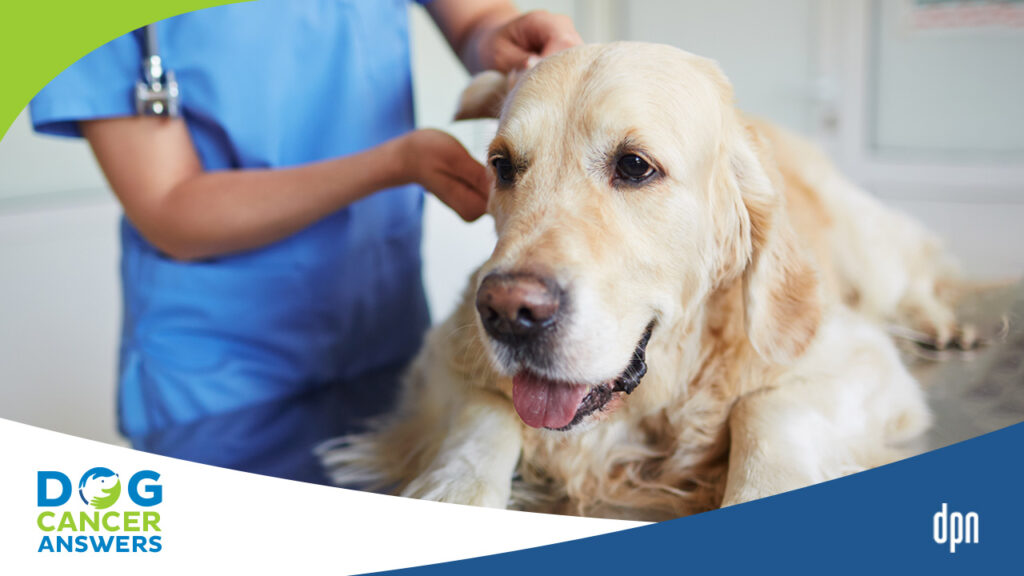[00:00:00] >> James Jacobson: Today on our special exam room series, mammary gland tumors, and what you need to know to help your dog.
[00:00:07] >> Announcer: Welcome to Dog Cancer Answers, where we help you help your dog with cancer. Here’s your host, James Jacobson.
[00:00:16] >> James Jacobson: Hello friend. Let me start off by saying. I’m sorry, I am sorry that you are listening to this podcast. Sure, I knew that is an odd thing for our host to say in a welcome message, but the fact that you are listening to my voice now probably means that you have a dog who has been diagnosed with a mammary gland tumor. I’ve been there. I know what it’s like to have a dog who has cancer. And I also want to let you know that you’re in the absolute best place because you’re in good company.
[00:00:46] Unfortunately, cancer is the number one killer of dogs, but there is a lot of hope. Dogs do not have an expiration date stamped on their forehead. There are so many things that you can do to help your dog after you get a mammary gland tumor diagnosis. Now, I’m lucky. My veterinarian is Dr. Demian Dressler, author of the bestselling book, The Dog Cancer Survival Guide.
[00:01:09] He’s a renowned authority on full spectrum approaches to treating dog cancer. And today, you can come into his exam room and listen to what he would tell one of his clients whose dog was diagnosed with a mammary gland.
[00:01:25] >> Dr. Demian Dressler: So mammary gland cancers is a really, really common in dogs that have not been spayed. And when we talk about these tumors and we talk about the risk of these tumors developing, and then we talk about whether or not the animal has been spayed, the reason why it comes up is because dogs that have been spayed very rarely develop mammary cancers.
[00:01:47] So this brings up an interesting question. Well, is spaying the right thing for my dog? Should I spay after the development of mammary tumors or before? And what should I really do with this? Because spaying and neutering are really complicated questions. When we’re talking about memory cell cancer, after it’s already developed, the question comes up.
[00:02:06] Well, should I stay my dog or should I not? And the evidence is mixed. And the reason for that is because there is a connection between not being spayed and the development of mammary cancer and its progression. So it turns out that if your dog has not been spayed and your dog is older than about two years, then there may be some benefit with some types of mammary cancers.
[00:02:29] Now I tell people that if you have a very old dog and their surgical risk, that is, we want to decrease the anesthesia time when we’re removing these tumors because there’s heart disease or kidney disease, or the animal is very, very aged, and we want to get the tumor cells out, yet at the same time, the evidence is mixed as to whether or not doing a spay at the same time is going to help survival time.
[00:02:52] I will lean towards not doing the spay if you’ve got a very high risk patient. On the other hand, if your dog is stable and is not at the end of their estimated life span and the anesthetic risk is considered low or fair, go ahead and do the spay because there may be some benefit. Now, one thing that’s, I think overlooked very frequently concerning spaying in particular is the side effects of a spay.
[00:03:16] Now spaying is not an insignificant procedure. We’re removing almost all of the estrogen and progesterone from the body. That has effects on a body. And it’s a long discussion, but to make a long story short, please educate yourself on the possible results of getting a spay done for your dog, because sometimes you can develop a leaky bladder.
[00:03:36] Sometimes you have increased rates of orthopedic problems. Sometimes there’s body weight changes. There’s a lot of things that happen, and this is not a judgment call on good versus bad. And this is not a judgment call on whether or not spaying is beneficial for the dog numbers in the world. But it’s important to educate yourself on the pros and cons of spaying and neutering for your dog’s wellbeing.
[00:03:55] The other thing I think is useful to remember is that dogs that have cancer benefit from things beyond surgery, chemotherapy, and radiation. And these are going to be diets. These are going to be supplements, whether they are immune supplements or whether they’re a pathogen supplements, which are designed to maintain normal cell turnover and a whole variety of other steps that are really important, I think in part of a full spectrum plan so you can get the best outcome for your dog. And so that was the purpose of The Dog Cancer Survival Guide.
[00:04:23] >> James Jacobson: If you’d like to hear more about dog cancer and what you can do to help your dog. Now, I encourage you to pick up a copy of Dr. Dressler’s book, which just happens to be the sponsor of today’s episode and this entire special exam room series here on Dog Cancer Answers.
[00:04:41] The name of this best-selling book is The Dog Cancer Survival Guide: Full Spectrum Treatments to Optimize Your Dog’s Life Quality and Longevity. The authors are Dr. Demian Dressler, who you just heard from, and Dr. Susan Ettinger, an oncologist in New York. And in a minute, I will tell you how to get their book at a discount.
[00:05:02] This book is considered the bible of dog cancer, and it covers so much information in an easy to understand, easy to reference guide. For example, the book covers everything that you need to know about conventional veterinary treatments, that’s surgery, chemotherapy, and radiation, including how to reduce their side effects.
[00:05:21] The most effective, non-conventional options, including botanical nutraceuticals, supplements, nutrition and mind-body medicine. And the book helps you to analyze the options and develop a specific plan for your own dog, based on your dog’s type of cancer, your dog’s age, your financial budget and your time constraints, as well as your personality.
[00:05:43] The Dog Cancer Survival Guide is available wherever fine books are sold, both online and in physical bookstores. It’s available either in paperback or as an ebook edition. And the ebook is under $10. The website to get either the paperback or the ebook is www.dogcancerbook.com. And you will save 10% if you use the promo code PODCAST when you checkout, you’ll save 10%. And the website again, dogcancerbook.com. Use the promo code PODCAST for 10% off. That is www.dogcancerbook.com.
[00:06:19] I want to let you know that we have lots of free, helpful information on our podcast website. The URL is dogcanceranswers.com. It’s where you can listen to or download our entire back catalog of episodes. It’s the best way to get the information that you need to help optimize your dog’s life, quality and longevity.
[00:06:45] Do you have a question for a dog cancer veterinarian? Well, one of our veterinarians could answer your question on a future episode of Dog Cancer Answers. Please call our listener line and record your question. The telephone number is (808) 868-3200. That is (808) 868-3200, or visit our website at dogcanceranswers.com.
[00:07:10] With dog cancer, you want to get relevant information as quickly as possible. So make sure you get the next episode of our podcast as soon as it’s released by subscribing to Dog Cancer Answers in Apple Podcasts or your favorite podcast app. We’re also on Spotify as well as YouTube.
[00:07:30] That’s all for this episode in our exam room series, I’d like to thank Dr. Demian Dressler for being our guest today. Until next time. I’m James Jacobson. From all of us here at Dog Cancer Answers and Dog Podcast Network, I wish you and your dog, a warm Aloha.
[00:07:50] >> Announcer: Thank you for listening to Dog Cancer Answers. If you’d like to connect, please visit our website at dogcanceranswers.com, or call our listener line at (808) 868-3200. And here’s a friendly reminder that you probably already know, this podcast is provided for informational and educational purposes only. It’s not meant to take the place of the advice you receive from your dog’s veterinarian.
[00:08:14] Only veterinarians who examine your dog can give you veterinary advice or diagnose your dog’s medical condition. Your reliance on the information you hear on this podcast is solely at your own risk. If your dog has a specific health problem, contact your veterinarian. Also, please keep in mind that veterinary information can change rapidly, therefore, some information may be out of date
[00:08:34] Dog Cancer Answers is a presentation of Maui Media in association with Dog Podcast Network.



